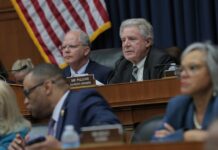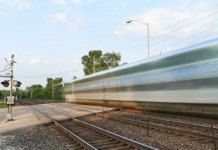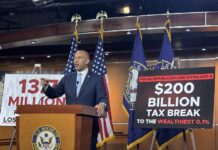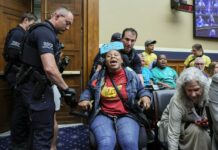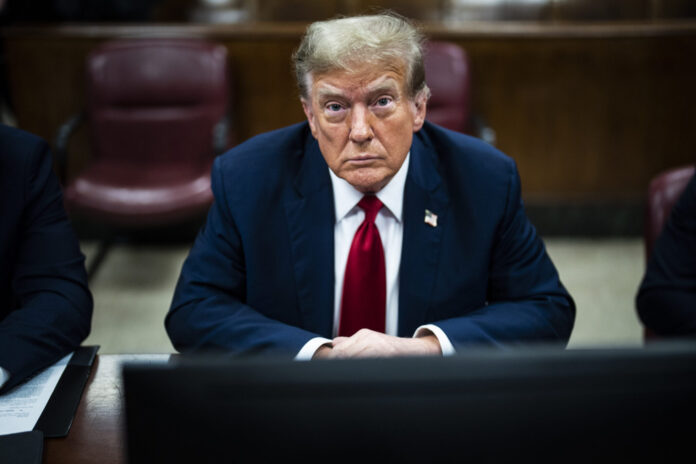
(States Newsroom) — Former President Donald Trump asked a New York court Thursday to delay until after November’s presidential election his sentencing for the 34 state felonies the court convicted him of in May.
Judge Juan Merchan scheduled a sentencing hearing for Sept. 18. But that date overlaps with early voting in the presidential election and gives Trump too little time to appeal a potential ruling against him on a request to vacate the conviction, which Merchan is scheduled to issue two days prior, attorneys Todd Blanche and Emil Bove wrote to Merchan in a letter dated Wednesday.
The one-page letter was not on the court’s official docket Thursday morning, but Blanche provided a copy to States Newsroom and said it had been filed with the court.
Merchan’s schedule is unrealistic and ignores several related issues, Trump’s attorneys wrote.
A sentencing proceeding could improperly affect voters’ perception of Trump leading up to Election Day, and Merchan’s daughter’s ties to elected Democrats could undermine the public’s faith in the court, they wrote.
While Merchan has rejected three requests from Trump that he recuse himself from the case because of his daughter’s employment at a company that produces advertising campaigns for Democrats, Trump’s lawyers said delaying the sentencing would help mitigate any potential appearance of a conflict of interest.
Trump’s Democratic rival, Vice President Kamala Harris, and her running mate, Minnesota Gov. Tim Walz, continue to discuss the case on the campaign trail. And the founder of the firm where Merchan’s daughter works has expressed his support for Harris on social media, Blanche and Bove wrote.
Election entanglements
The Sept. 18 sentencing is also scheduled “after the commencement of early voting in the Presidential election,” they wrote.
“By adjourning the sentencing until after that election … the Court would reduce, even if not eliminate, issues regarding the integrity of any future proceedings,” they wrote.
Pennsylvania law allows the earliest voting, according to a database compiled by the National Conference of State Legislatures. Pennsylvania counties are permitted to hold early voting 50 days before Election Day, which is Sept. 16.
It is unclear if any counties in the key battleground state are planning to make voting available that soon.
No other states allow voting before Sept. 18, according to the NCSL database. Blanche did not answer an emailed question about what early voting he was referring to in the letter.
Presidential immunity
Trump’s attorneys said the sentencing hearing should also be moved to accommodate another issue in the case: Trump’s presidential immunity argument.
Trump has asked for his conviction to be overturned following a U.S. Supreme Court decision that ruled presidents were entitled to a broad definition of criminal immunity for acts they take in office.
Merchan set a Sept. 16 date to rule on the request the state conviction be set aside, but Trump’s attorneys said that does not leave enough time for Trump to appeal a potentially unfavorable ruling on the immunity issue.
“The requested adjournment is also necessary to allow President Trump adequate time to assess and pursue state and federal appellate options in response to any adverse ruling,” they wrote.
The Supreme Court decision that established presidential immunity arose from a pretrial appeal, they wrote.
A New York jury convicted Trump in May of 34 felony counts of falsified business records, making him the first former president to be convicted of a felony. Trump was accused of sending $130,000, through attorney Michael Cohen, to adult film star Stormy Daniels in the weeks before the 2016 election to buy her silence about an alleged sexual encounter years earlier.
Merchan initially set sentencing for July 11.
But after the Supreme Court ruled on July 1 that presidents enjoy full immunity from criminal charges for their official acts, the New York judge agreed to delay sentencing to first rule on how the Supreme Court decision affected the New York case.
While much of the conduct alleged in the New York case took place before Trump was in office, his attorneys have argued that the prosecution also included investigations into Oval Office meetings with Cohen that could be impermissible under the Supreme Court’s standard.


